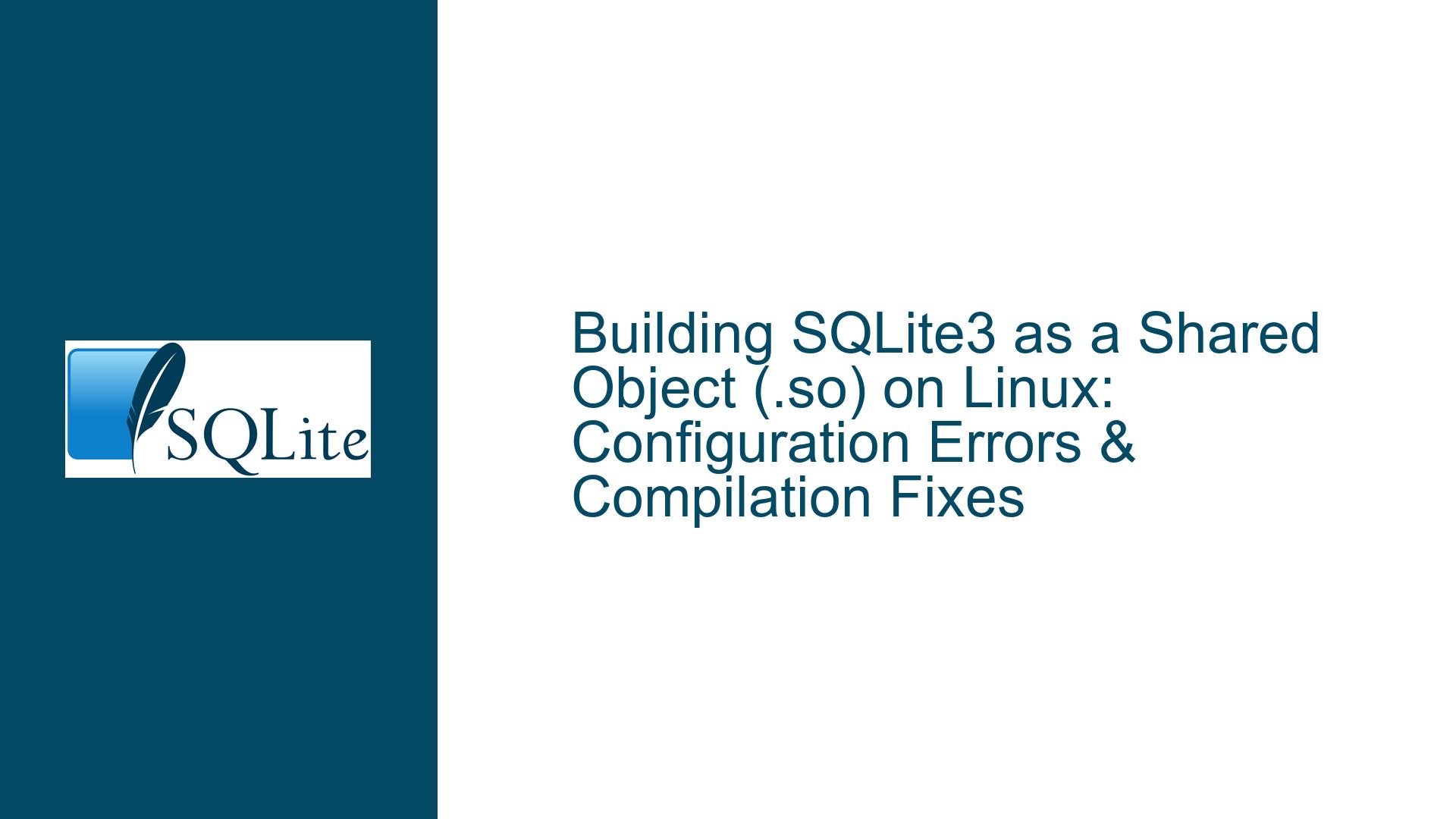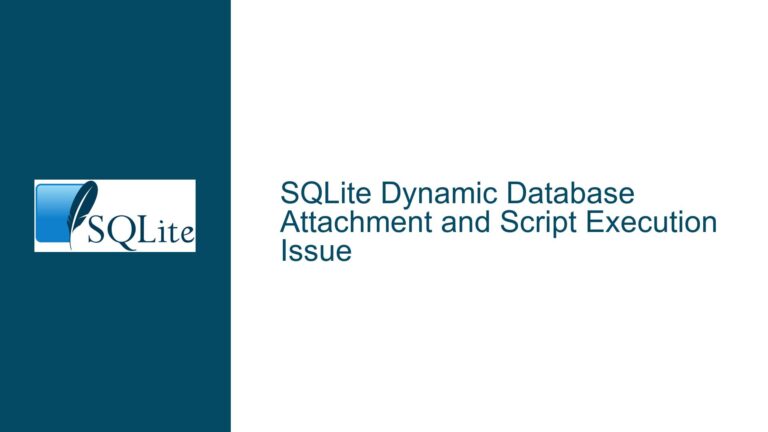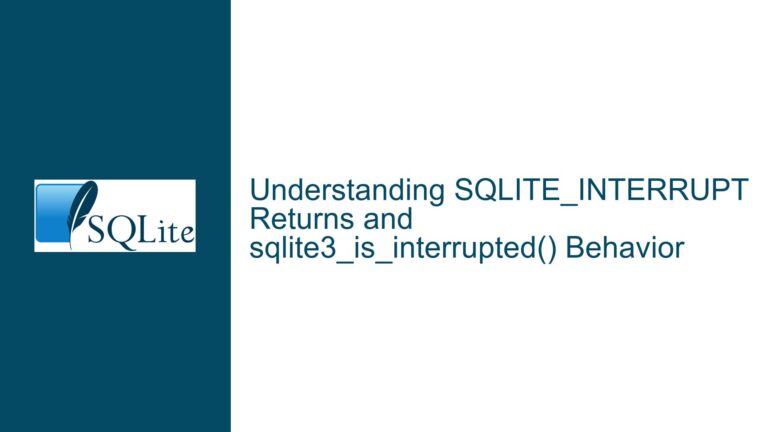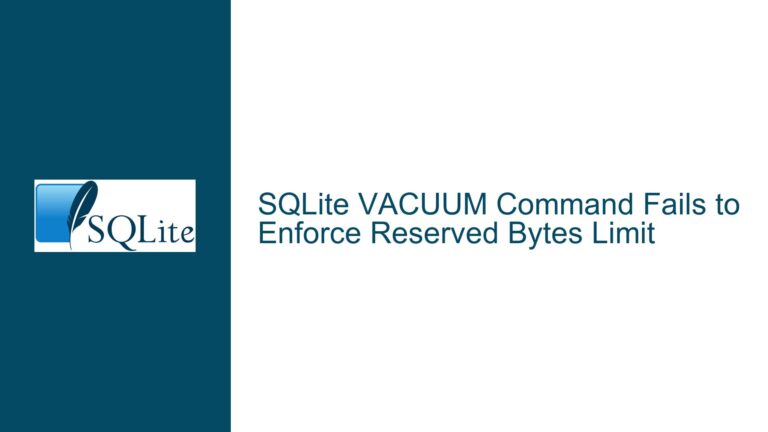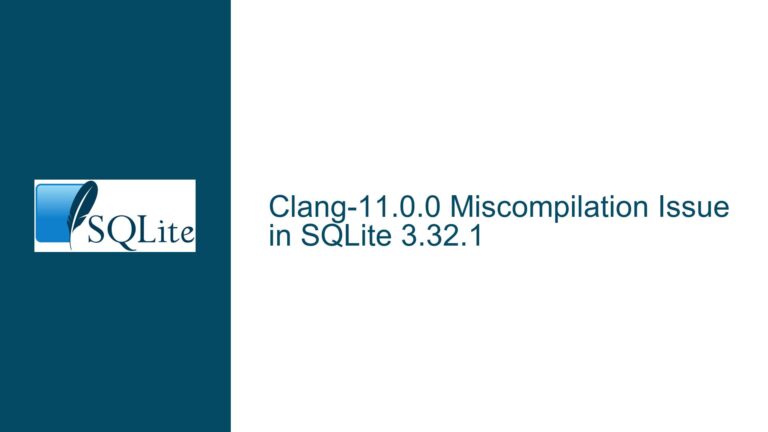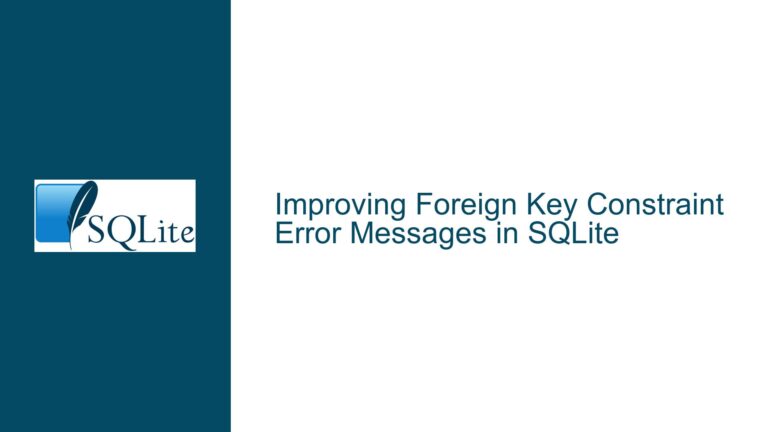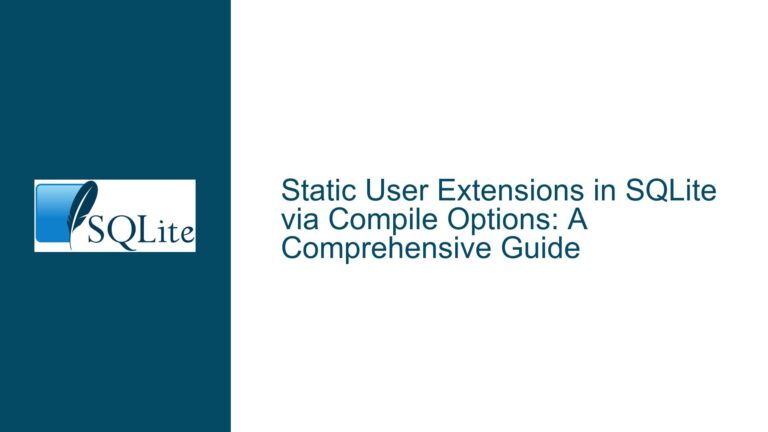Building SQLite3 as a Shared Object (.so) on Linux: Configuration Errors & Compilation Fixes
Issue Overview: Failed Compilation of SQLite3 Shared Library via Configure/Make
The core challenge revolves around compiling SQLite3 as a shared object (.so) on a Linux system (specifically MX-Linux/AMD64) using the standard Autotools build process (configure + make). The user attempted to generate sqlite3.so by modifying compiler flags (e.g., CFLAGS="-Os -shared") but encountered a critical error during configuration:
configure: error: cannot run C compiled programs.
If you meant to cross compile, use `--host`.
This halted the build process despite following conventional steps. After failed attempts with make sqlite3.so (due to missing Makefile rules), the user resorted to manually compiling sqlite3.c with gcc -shared, which succeeded but bypassed the intended Autotools workflow.
The problem exposes three interconnected gaps:
- Misunderstanding of Autotools Workflow: How
configureandmakeinteract to detect system capabilities and generate platform-specific build rules. - Incorrect Flag Propagation: Adding
-sharedtoCFLAGSprematurely disrupts compiler checks during the configuration phase. - Lack of Shared Library Targets: The default SQLite Makefile does not include explicit rules for building standalone
sqlite3.sodue to SQLite’s design as an embeddable library.
Possible Causes: Configuration Missteps, Flag Conflicts, and Build System Assumptions
1. Autotools Configuration Misconfiguration
The configure script performs a series of checks to determine compiler compatibility, library dependencies, and system architecture. When -shared is added to CFLAGS, it alters the compiler’s behavior during these checks. Specifically:
- Executable Tests Fail: The
configurescript compiles and runs small test programs to verify the toolchain. The-sharedflag instructs the compiler to generate a shared library instead of an executable, causing the test binaries to fail execution. - Cross-Compilation Assumption: The error message suggests the system believes it is cross-compiling (building for a different platform). Adding
--hostwould suppress executable tests, but this is unnecessary for native builds.
2. Confusion Between Object Files and Shared Libraries
SQLite’s default build process prioritizes static libraries (.a) or a standalone amalgamation object (.o). Shared libraries (.so) require explicit enablement via Autotools flags (e.g., --enable-shared). The absence of a sqlite3.so target in the Makefile indicates:
- Missing Libtool Integration: SQLite’s Autotools build uses Libtool to manage platform-specific shared library creation. If Libtool is not properly initialized or the build system lacks support, shared library targets may not be generated.
- Amalgamation Build Limitations: The SQLite amalgamation (
sqlite3.c) is designed for simplicity but requires manual intervention to build as a shared library outside the Autotools framework.
3. Distro-Specific Package Fragmentation
Debian-based systems (including MX-Linux) often split packages into runtime and development components:
sqlite3Package: Provides the CLI shell (sqlite3) and possibly a statically linked executable.libsqlite3-devPackage: Includes headers (.h) and static libraries (.a) for development.libsqlite3-0Package: Contains the shared library (.so.x.x.x) for runtime linking.
If the user installed only the CLI tool (sqlite3), the shared library would be missing. Compiling from source without resolving dependencies (e.g., libtool, automake) exacerbates the issue.
Troubleshooting Steps, Solutions & Fixes: Correctly Building SQLite3 as a Shared Library
1. Validate the Build Environment and Dependencies
Before compiling, ensure the system has the necessary tools and libraries:
Install Build Essentials:
sudo apt install build-essential libtool autoconf pkg-configThis provides
gcc,make,libtool, and other Autotools components.Install SQLite Development Packages (Optional):
sudo apt install libsqlite3-devWhile not required for compiling from source, this ensures header files and symbolic links are present.
2. Use the Official Amalgamation Source
Download the autoconf tarball from SQLite Download Page, which includes the amalgamation and Autotools scaffolding:
wget https://sqlite.org/2023/sqlite-autoconf-3420000.tar.gz
tar xvfz sqlite-autoconf-3420000.tar.gz
cd sqlite-autoconf-3420000
3. Configure with Shared Library Support
Run configure with explicit flags to enable shared libraries:
./configure --enable-shared --disable-static
--enable-shared: Instructs Autotools to generate shared library targets.--disable-static: Disables static library creation (optional).
Critical Note: Avoid adding -shared to CFLAGS manually. The configure script and Libtool handle this automatically when --enable-shared is set.
4. Build and Install the Libraries
Execute make and make install:
make
sudo make install
Output Locations:
- Shared Library:
/usr/local/lib/libsqlite3.so.x.x.x - Symlink:
/usr/local/lib/libsqlite3.so - Headers:
/usr/local/include/sqlite3.h,sqlite3ext.h
- Shared Library:
Post-Install Configuration:
Update the dynamic linker cache:sudo ldconfig
5. Manual Compilation Workaround (Advanced)
If Autotools still fails, compile the amalgamation directly:
gcc -shared -fPIC -o libsqlite3.so sqlite3.c -ldl -lpthread
-fPIC: Generates position-independent code (mandatory for shared libraries).-ldl -lpthread: Links against the dynamic loader (dlopen) and pthreads library.
Limitations:
- Manual builds skip versioning and symbol visibility controls.
- No
pkg-configsupport (sqlite3.pc), complicating dependency management in other projects.
6. Diagnosing Configure and Make Errors
- Review
config.log: Search for failed compiler tests and truncated error messages. - Test Compiler Flags: Temporarily remove custom
CFLAGS/LDFLAGSto isolate conflicts. - Verify Libtool Execution: Check
Makefilefor Libtool rules (LIBTOOLvariable).
7. Integration with System Libraries
To override the system SQLite3 library:
- Set
LD_LIBRARY_PATH:export LD_LIBRARY_PATH=/usr/local/lib:$LD_LIBRARY_PATH - Rebuild Dependent Applications: Ensure they link against the new
libsqlite3.so.
This guide systematically addresses the pitfalls in building SQLite3 as a shared library, emphasizing Autotools best practices and distro-specific considerations. By aligning configuration flags with build system expectations and resolving toolchain dependencies, users can reliably generate shared objects without resorting to manual workarounds.
